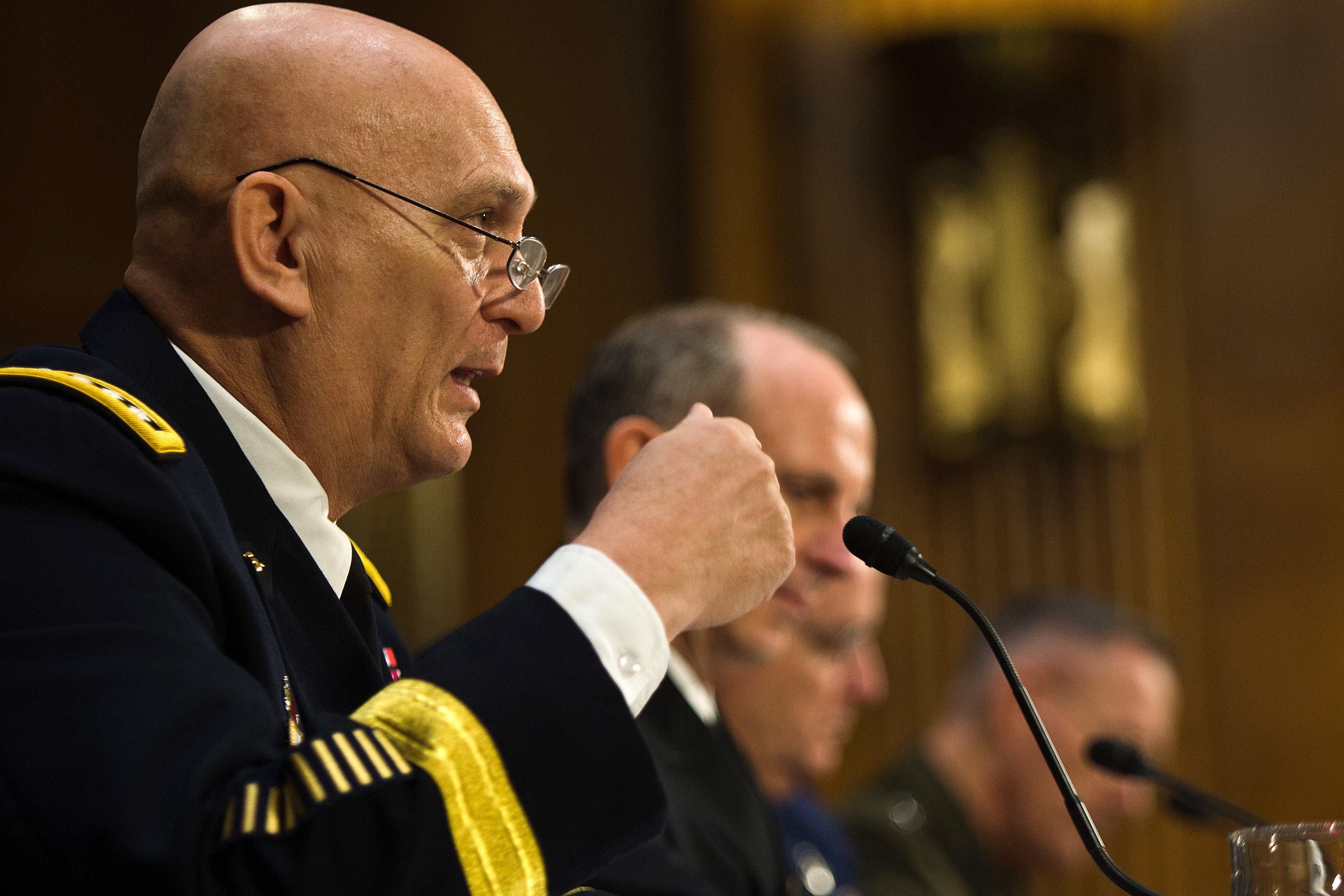Odierno, Sullivan Speak Out Against Sequestration
Odierno, Sullivan Speak Out Against Sequestration

Another round of sequestration would put the Army “on a path of accelerated and much deeper cuts to our forces while debilitating readiness and reducing modernization and manpower,” Army Chief of Staff Gen. Raymond T. Odierno warned Jan. 28 in testimony before Congress.Appearing with the other service chiefs before the Senate Armed Services Committee, Odierno said such cuts could lead to the Army losing the trust of soldiers, force an additional 60,000 cut in the size of the Total Army and increase strategic risk by reducing training readiness.“The center of everything we do is our soldiers,” he said. Trust is something lost over time, but it happens through cutting numbers, cutting training and the cutting of funds for maintenance and equipment, he said.Risk also comes from sequestration, which would cut defense funding by about 10 percent. If forced to make more troop cuts, “our flexibility deteriorates, as does our ability to react to strategic surprise,” Odierno said.“A return to sequestration-level funding would require the Army to size and equip the force based on what we can afford, not what we need, increasing the risk that when called to deploy we will either not have enough soldiers or will send soldiers that are not properly trained and equipped,” Odierno said.Any additional force cuts would be ill-timed, he said. “The reality we face is that the demand for Army forces throughout the world is growing while the size of the force is shrinking,” he said. “We remain fully engaged with nearly 140,000 soldiers committed, deployed or forward-stationed conducting five named operations on six continents in nearly 140 countries, with nine of our 10 division headquarters employed across the globe. But in spite of the range of threats facing our nation, sequestration remains the law of the land, and we are reducing our capacity and capability.”Stopping sequestration, which would require agreement between the Republican-controlled Congress and President Barack Obama, is a top priority of the Association of the U.S. Army.Retired Army Gen. Gordon R. Sullivan, AUSA’s president and CEO, said in a Jan. 27 letter to Congress that cutting national security spending “is unwise in a dangerous world.”“Sequestration weakens our nation and encourages our enemies,” Sullivan wrote. “The global threat of international terrorism is not going away and the potential for cyberattacks from hostile nations increases daily."The services already are too small while the global threat is increasing, Sullivan said. “To maintain national security, we must have military forces that are efficient, effective, and well-trained. They must be well-equipped, capable and responsive. The way to have military forces with those qualities is to invest in America’s defense, not to gut defense spending with a meat cutter called sequestration.”A complete repeal of sequestration has been discussed but is not certain. Sen. Roger Wicker, R-Miss., a member of the Senate Armed Services and Budget committees, said a solution might be to give the Defense Department wider authority to shift money between accounts under sequestration rather than the complete repeal.Odierno said Wicker’s idea would only give the Army “more flexibility to move around insufficient funds.”

